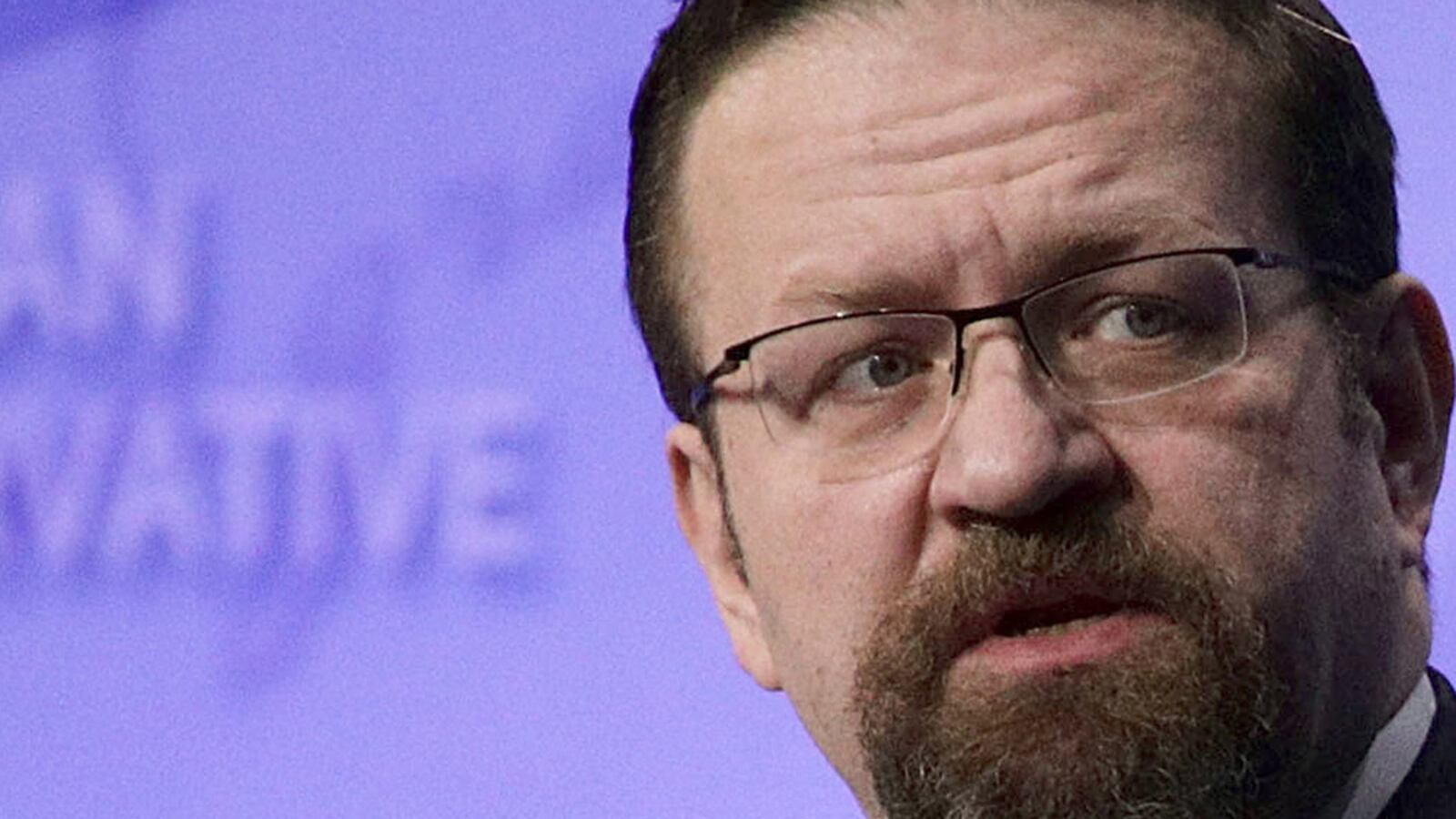Sebastian Gorka, a controversial adviser to President Trump, said on Monday journalists who report "fake news... jeopardize stability all around the world.”
The deputy assistant to the president got up and left a Georgetown University cybersecurity conference entitled “News, Alternative Facts, and Propaganda: The Role of Cyber in Influence Operations” after he made his remark. The event drew vocal protesters, equipped with signs condemning Gorka who faced a series of difficult questions from students at the event.
The final question was about a recent story reported in The Guardian purporting that Gorka had drawn up a plan to divide Libya into three regions on a napkin during a meeting with a European diplomat.
The Daily Beast obtained video of the event from Sarah Clements, a self-described student activist at Georgetown University. The key exchange begins at the 2:25 mark.
“My question is for Mr. Gorka,” a man who identifies himself as a scientist begins. “The Guardian exactly two weeks ago today reported that Mr. Gorka wrote on a napkin a plan to split Libya citing a 16th Century Ottoman rule. My question is, I would like for Mr. Gorka to deny or confirm, if you can, regardless of the answer, do you think that jeopardizes the U.S. ability as a peace broker when the country is biased towards those countries.”
Gorka immediately responded.
“Thank you for raising that,” he said. “Absolutely, utterly, categorically deny. The idea that I did that, for anybody who knows me, again, is absurd. And anybody who thinks I would like the job posited in that article has no idea what they’re talking of.”
Gorka continued.
“And does that kind of story endanger peace-brokering in the Middle East? No. The people who write fake news definitely jeopardize stability all around the world,” Gorka concludes.
Gorka, who once said that “alpha males” are back, then thanks the person who asked the question and proceeds for the exit. The individual who asked the question tries to follow up but Gorka does not respond.
It is unclear whether the question itself is what compelled Gorka to leave, but a spokesperson for Georgetown told Talking Points Memo that Gorka was always scheduled to leave at 1:30 p.m., before the conference was over. This was apparently not made clear to those in attendance.
Students in attendance described a contentious atmosphere as organizations such as J Street U, the Jewish Student Association and the Muslim Student Association came prepared with signs condemning alleged ties between Gorka and the Order of Vitez, an order in Hungary created by a Nazi collaborator.
“During the Q&A session, 5 undergraduate students asked questions regarding his credentials, such as his academic history, and his work in the White House,” Jared Stancombe, a program assistant at Global Health Corps, who was in attendance told The Daily Beast. “These were questions not entirely relevant to the discussion at hand, but Sebastian Gorka responded in an entirely condescending way, which people who attended the panel discussion did not find comfortable.”
“The conference was pretty sterile until the Q&A,” Georgetown student Roey Hadar, who asked Gorka a question, told The Daily Beast. “The other representatives were officials from foreign governments for the most part, so their responses were pretty boilerplate. Gorka turned pretty much every answer into a story about himself, starting off by telling a story about how his dad protected Jewish people. He also told the protesters to ‘go away’ and learn more about him before calling him an anti-Semite.”
Hadar asked Gorka if he thought that “harsh anti-Muslim rhetoric in the media and in government” fueled extremism, to which Gorka responded in part by saying that Hadar was “committing cultural appropriation and arrogance.”






